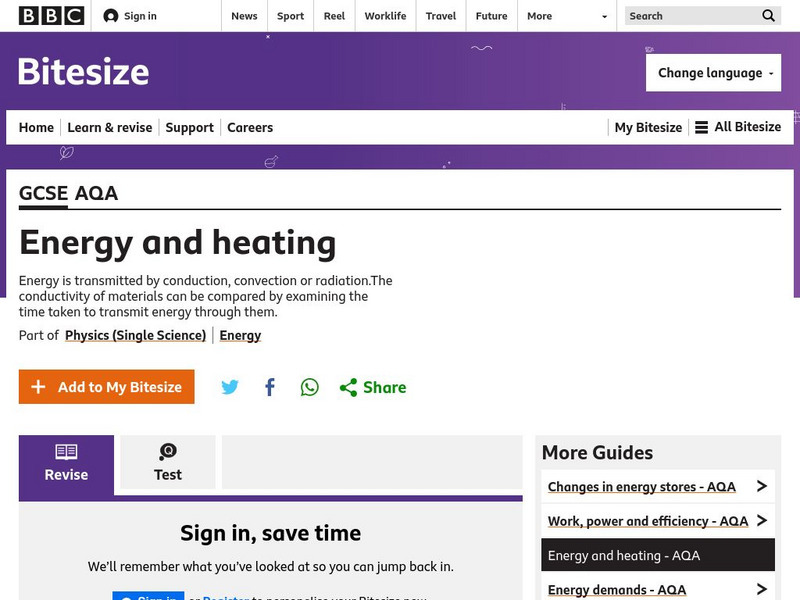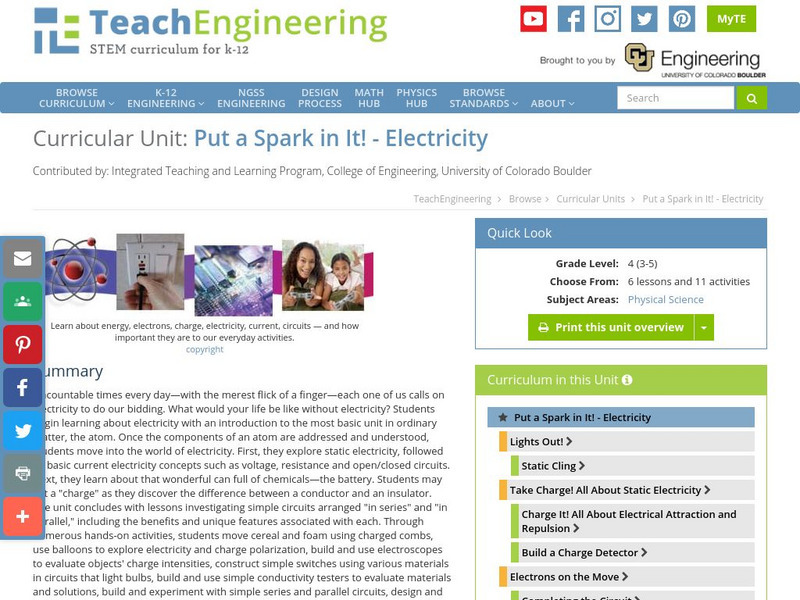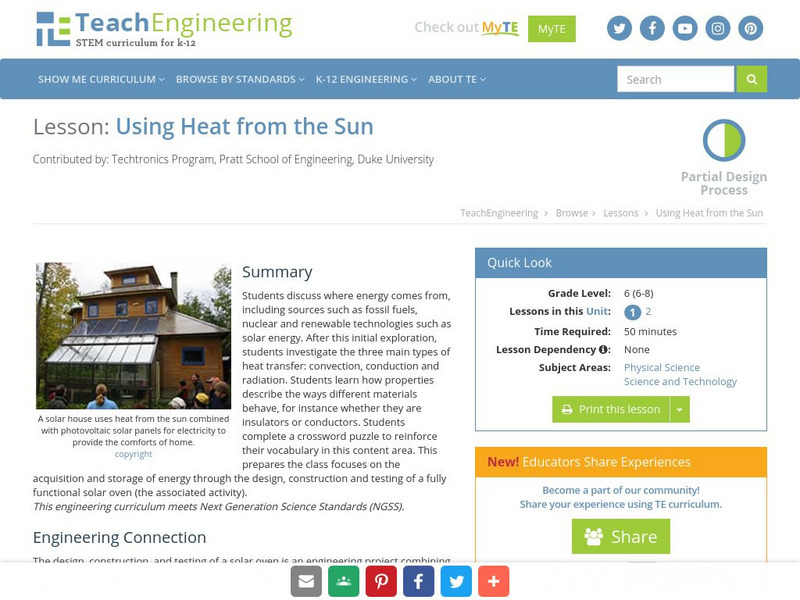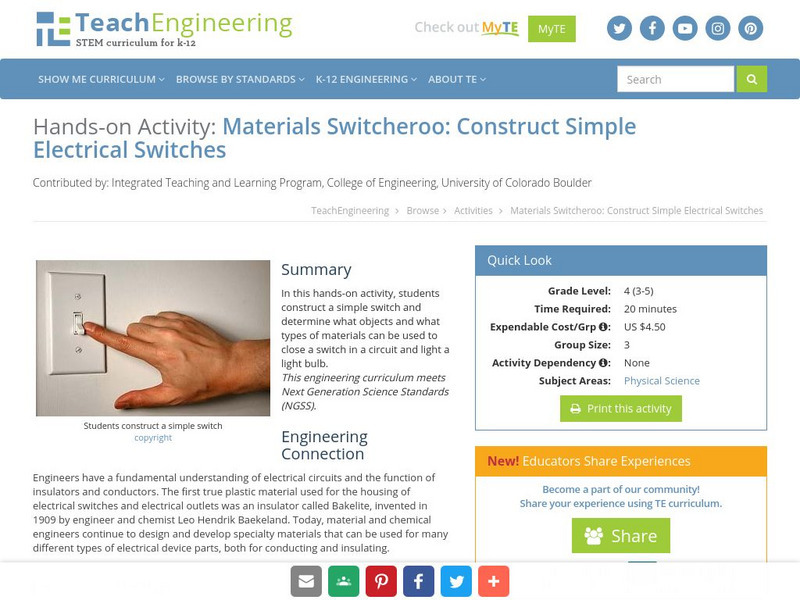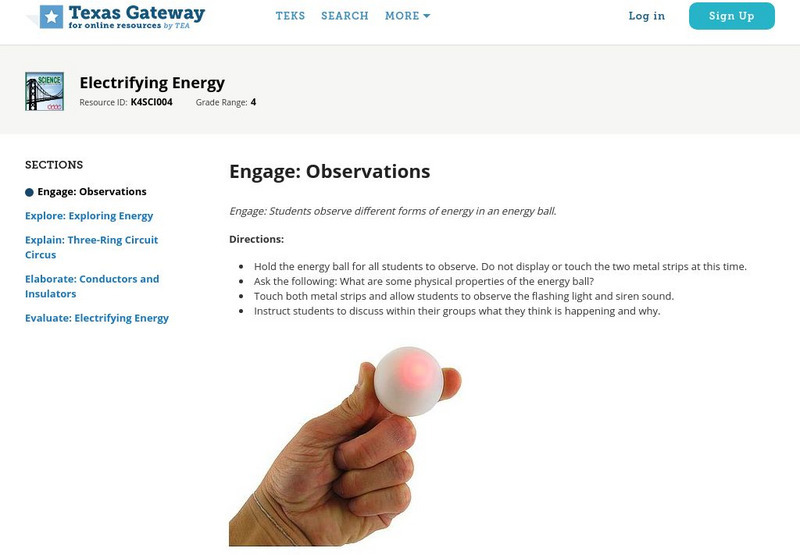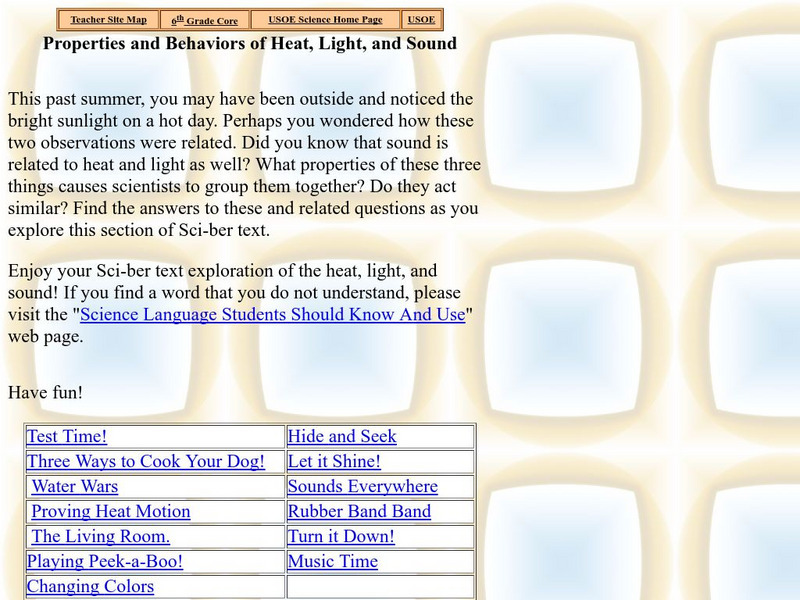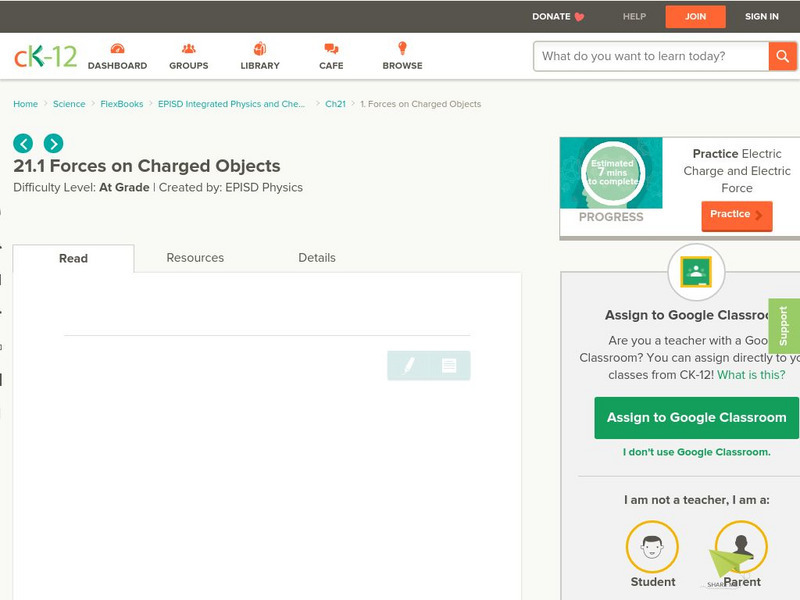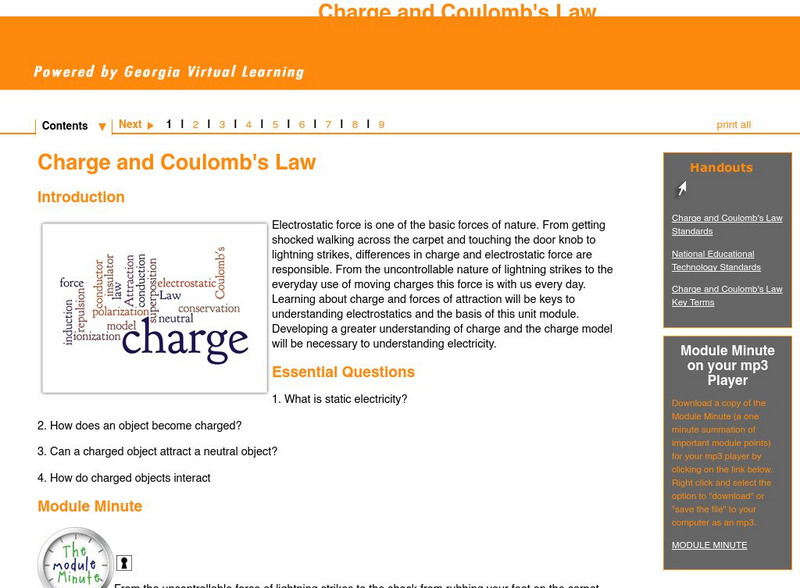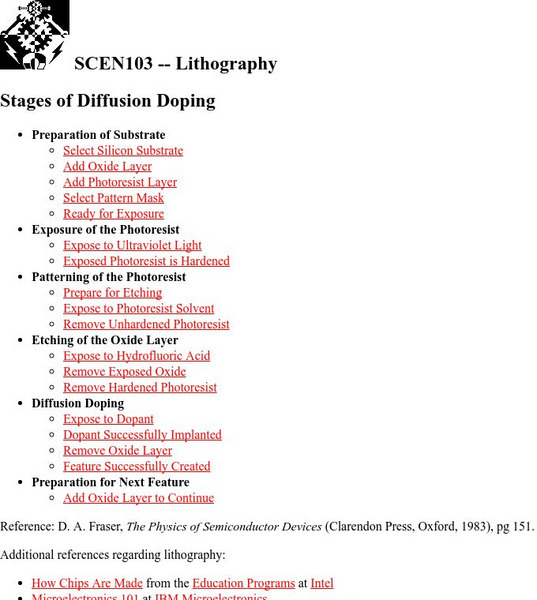BBC
Bbc: Gcse Bitesize: Energy and Heating
Energy is transmitted by conduction, convection or radiation.The conductivity of materials can be compared by examining the time taken to transmit energy through them. This lesson explains how conduction works and provides a link to a test.
CK-12 Foundation
Ck 12: Physics Simulation: Power Lines
[Free Registration/Login Required] Learn about the relationship between electric potential, current, and resistance in the context of high-voltage AC power lines using this interactive simulation. A PDF worksheet and a video tutorial are...
ClassFlow
Class Flow: Turning on the Lights
[Free Registration/Login Required] In this lesson students learn the parts of a circuit, build series and parallel circuits, learn about insulators and conductors, and more in this interactive multimedia flipchart.
TeachEngineering
Teach Engineering: Put a Spark in It! Electricity
Uncountable times every day "with the merest flick of a finger"each one of us calls on electricity to do our bidding. What would your life be like without electricity? Students begin learning about electricity with an introduction to the...
TeachEngineering
Teach Engineering: Using Heat From the Sun
In this lesson, students will first discuss where energy comes from, including sources such as fossil fuels, nuclear, and such renewable technologies as solar. After this initial exploration, students will investigate the three main...
Canada Science and Technology Museum
Canada Science and Technology Museum: Background Information for Electricity
The Canada Science and Technology Museum answers some of the most common questions about electricity. For example, get the definition of electricity, the difference between alternating and direct currents, and learn how a fuse works.
TeachEngineering
Teach Engineering: Build a Charge Detector
In this hands-on activity, students explore the electrical force that takes place between two objects. Each student builds an electroscope and uses the device to draw conclusions about objects' charge intensity. Students also determine...
TeachEngineering
Teach Engineering: Switcheroo
In this hands-on activity, students construct a simple switch and determine what objects and what types of materials can be used to close a switch in a circuit and light a light bulb.
Texas Education Agency
Texas Gateway: Electrifying Energy
This tutorial reviews over electrical energy.
American Chemical Society
Middle School Chemistry: Heat, Temperature, and Conduction
Students observe, describe, and draw a model on the molecular level, showing how energy is transferred from one substance to another through conduction.
Utah State Office of Education
Utah Science: The Mysterious Force
There is a secret mysterious force in your home right this very moment! Try these activities to first identify that force and then extend your knowledge of the force by investigating the other activities provided.
Utah State Office of Education
Utah Science: Properties and Behaviors of Heat, Light and Sound
How can scientists lump heat, light and sound together when investigating properties and behaviors? This learning module will address that question through a series of activities.
CK-12 Foundation
Ck 12: Forces on Charged Objects
[Free Registration/Login may be required to access all resource tools.] Students learn which subatomic particles contribute to static electricity, and determine the charge of an object based on what particles it has gained or lost.
Concord Consortium
Concord Consortium: Stem Resources: Semiconductors
Several visualizations that help students understand the basic properties of semiconductors. Students can turn a silicon crystal into an insulator or a conductor, investigate the probability waves of an electron, and make a depletion...
Georgia Department of Education
Ga Virtual Learning: Electrostatics
Through informational text, interactive activities, practice problems, and virtual simulations, students learn about the basic properties of electricity in this unit.
Georgia Department of Education
Ga Virtual Learning: Charge and Coulomb's Law
Learning about charge and forces of attraction will be keys to understanding electrostatics and the basis of this learning unit. Developing a greater understanding of charge and the charge model is necessary to understanding electricity.
Physics Classroom
The Physics Classroom: Inducing a Positive Charge on a Sphere
This tutorial from the Glenbrook South High School provides an animation depicting the induction charging of a single sphere by the process of induction. The movement of electrons is shown. The animation is accompanied by explanations of...
Physics Classroom
The Physics Classroom: Charging a Two Sphere System by Induction
From the Multimedia Physics Studios. An animation depicting the induction charging of a double sphere system by the process of induction. The movement of electrons between spheres and between the ground and sphere is shown. The animation...
The Wonder of Science
The Wonder of Science: Ms Ps3 3: Thermal Energy Transfer Solution
Lessons to show thermal energy transfer. Middle schoolers will "apply scientific principles to design, construct, and test a device that either minimizes or maximizes thermal energy transfer".
Science and Mathematics Initiative for Learning Enhancement (SMILE)
Smile: Electromagnets
This lesson plan contains several activities designed to help the student understand the magnetic effects of an electrical current.
Science Education Resource Center at Carleton College
Serc: Elements Metals, Nonmetals and Metalloids
Students investigate several properties of the given elements and decide whether each element is a metal, non-metal, or a metalloid.
Other
University of Delaware Physics Department: Lithography
University of Delaware Physics Department provides this indexing page for a slide show presentation.
Other
Univ. Of Delaware Physics: More Semiconductor Physics
The University of Delaware Physics Department provides this site from a site titled "Silicon, Circuits, and the Digital Revolution," here is a series of four pages which explain the details behind how semiconductors work. An introduction...
University Corporation for Atmospheric Research
Ucar: Atmospheric Processes Conduction
This simple demonstration helps students understand the concept of conduction. Site includes background information, images, and lesson plans outlining the demonstration of conduction.
Other popular searches
- Insulators and Conductors
- Insulators Conductors
- Conductors Insulators Heat
- Heat Insulators and Conductors
- Insulators Conductors Game


